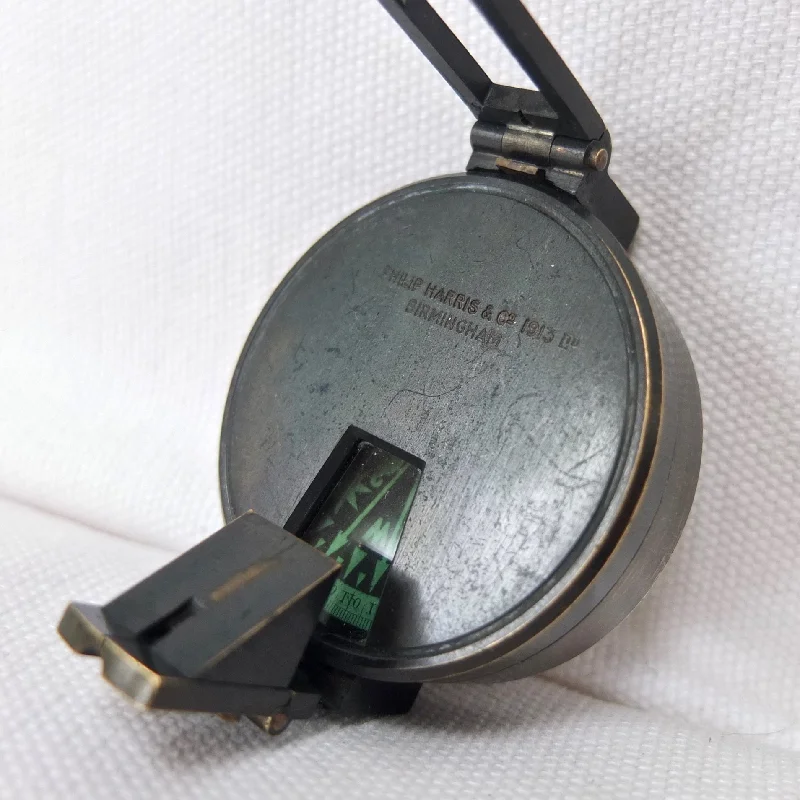A rare Greencard Prismatic Pocket Compass, signed by Philip Harris & Co. (1913) Ltd, Birmingham, dating from c.1914.
Harris were retailers rather than scientific instrument makers, and this compass would have been made by one of the major manufacturers, such as F. Barker & Son. Barker would have supplied the compass to Philip Harris & Co., who would then have added their own details to the case. This type of compass was a development of Schmalcalder's Patent compass of 1812 which introduced the idea of using an optical prism, combined with a sighting vane, to improve accuracy when taking bearings. This compass has an oxidized brass case, hand-drawn Singer's Patent design compass card, jewelled pivot, optical prism, and folding sighting vane. There is a transit lock, operated when the sighting vane is folded down.
The British Army used this type of compass from around 1860 to 1914. This particular example is unusual in that it is only 50mm in diameter. Most examples of this type of compass were larger, at around 70mm.
Philip Harris & Co. Ltd, Birmingham: traded at 144-46 Edmund St, Birmingham from 1904-1945. At its peak the company was one of the most prominent suppliers for the school science market. Succeeded by Philip Harris & Co. (1913) Ltd, and still trading today as Philip Harris Ltd.
The company was originally established in 1817 in Digbeth, Birmingham, by Thomas Ellis, a surgeon. Philip Harris joined Ellis in 1825. The company traded as a wholesale Chemical Laboratory Company, occupying a site in the Bull Ring until 1889, when they produced their Catalogue of Chemical and Physical Apparatus and Chemicals. They moved to 144–146 Edmund Street in 1904. Originally the company operated as a manufacturer of chemists and surgical products, before adding medicines to their list of products in 1866.
Condition:
In very good condition and full working order. The compass finds North well. With just some wear to the black oxidised finish of the brass case.
Dimensions:
Compass: 50mm (diameter), 80mm including prism

